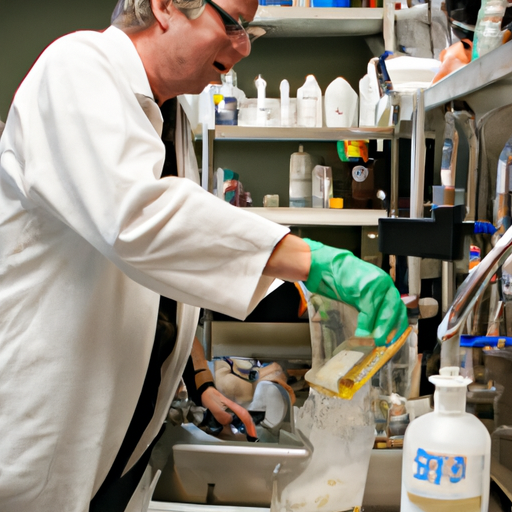As a caregiver, it’s crucial for you to understand every aspect of your dog’s health, including the medicines and substances used in veterinary practices. One such substance that frequently comes up in discussions is “sterile diluent for dogs.” But what exactly is it, and how is it used? Let’s delve deeper into this topic.
H2: Understanding Sterile Diluent
A sterile diluent, as its name suggests, is a sterile liquid used to dilute or dissolve other substances, mostly medicinal drugs, to make them safe and effective for administration. When it comes to dogs, vets often use a sterile diluent to prepare vaccines, medication, or other treatments.
The standard sterile diluent for dogs is usually water that has been thoroughly purified and sterilized to ensure it is free from any microbial contamination. However, some diluents may contain additional substances like saline, preservatives, or stabilizing agents for specific purposes.
H2: Role of Sterile Diluent in Canine Health
Sterile diluents play a vital role in canine health, particularly in the administration of vaccines and medications:
- Vaccine Administration: Most canine vaccines come in a lyophilized (freeze-dried) form that needs to be reconstituted with a sterile diluent before administration. The diluent not only helps dissolve the vaccine but also ensures it is in a form that is safe for your dog’s body.
- Medication Dilution: Some medications may be too strong to administer in their original form. In such cases, a sterile diluent is used to dilute the medication to a safer concentration.
H2: Choosing the Right Sterile Diluent
Different medications and vaccines may require different types of sterile diluents. Here’s a simple way to understand which type of diluent is suitable for what purpose:
| Purpose | Suitable Sterile Diluent |
|---|---|
| Vaccine Reconstitution | Specific diluent provided by the manufacturer |
| Medication Dilution | Sterile water or saline, as advised by the vet |
Note: Always use the diluent recommended by the medication or vaccine manufacturer or your vet. Using the wrong diluent could alter the effectiveness of the medication or vaccine.
H2: Administering Sterile Diluent
As a caregiver, you may not often need to administer the sterile diluent directly, as this is usually done by the vet during medical procedures. However, it’s good to know the process:
- The sterile diluent is drawn into a syringe.
- The syringe is then inserted into the vial containing the medication or vaccine.
- The diluent is slowly injected into the vial, mixing with the medication or vaccine until fully dissolved.
- The resultant solution is then ready for administration.
Remember, always consult with your vet before attempting to administer any medication or vaccine to your dog.
H2: Risks and Precautions
While sterile diluents are generally safe, improper use may pose risks. Always ensure:
- The diluent is not expired.
- The diluent and medication/vaccine are stored as per manufacturer’s instructions.
- You or the vet follows aseptic techniques to avoid contamination.
FAQ Section
Q1: Can I use any sterile water as a diluent for my dog’s medication?
No, always use the specific sterile diluent recommended by your vet or the medication/vaccine manufacturer.
Q2: Can sterile diluents cause any side effects in dogs?
While rare, some dogs may have a reaction to certain substances in the diluent. Always monitor your dog after medication or vaccine administration and report any adverse reactions to your vet.
Q3: Can I administer a medication or vaccine using a sterile diluent at home?
It’s always best to allow a veterinary professional to administer medications or vaccines, as they are trained in the correct techniques and can handle any immediate adverse reactions.
Q4: How long can I store a vaccine or medication mixed with a sterile diluent?
Follow the manufacturer’s or vet’s instructions. Some mixtures must be used immediately, while others have a specific shelf life post-mixing.
By understanding what sterile diluent is and its role in canine health, you as a caregiver can ensure your furry friend gets the best possible care. Remember, when in doubt, always consult with a vet.



